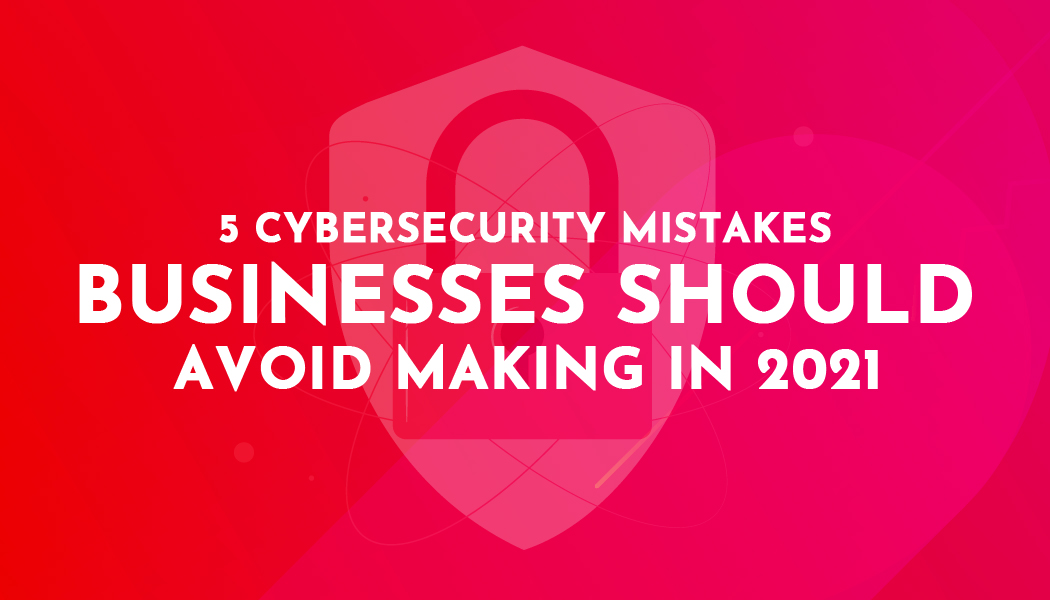5 Cybersecurity Mistakes Businesses Should Avoid Making In 2021
Introduction
- Are you a business looking to ramp up your cybersecurity measures and want to know where you should start?
- Do you know how cybersecurity attacks have been targeting both small and big businesses alike?
- Have you looked at installing security measures and infrastructures like PKI, firewalls, and antivirus solutions?
If you have not been living under a rock all these years, you probably would have heard about data breaches and cyberattacks ravaging businesses. Even the most sophisticated tech companies like Twitter have come under attack by advanced hackers and cybercriminals.
Most cyberattacks happen because businesses are not aware. This lack of awareness plays into the hands of cybercriminals who catch businesses off-guard and engineer dangerous malware into their systems.
A good beginning in order to understand how cybersecurity can be reinforced is beginning with the mistakes. We speak to leading experts in the domain, and ask them to highlight five of the most common cybersecurity mistakes businesses should avoid making in 2021.
List of the Top 5 Cybersecurity Mistakes Businesses should avoid making in 2021
1. Thinking you will not be hit-
The first and most common mistake of them all is ‘I will never be a victim of a cyberattack’! This false misconception prevents businesses, both big and small from taking the necessary steps and precautions to ramp up their cybersecurity.
Every business holds numerous data, information, and details that can be leveraged and used against it. These can be customer data, financial information, or even trade secrets. Small businesses are as vulnerable to be hit as bigger organizations.
2. Not Investing in Security Infrastructure-
Many experts are of the opinion that installing industry-leading security apparatuses like public key infrastructure can ensure that vulnerabilities are eliminated. In addition, using secured internet connections, having anti-virus solutions in place can prove to be effective.
Many business leaders still think that the above-mentioned security infrastructures are unnecessary expenditures. However, in reality, all it takes is one serious cyberattack to nearly shut down a full-fledging business.
3. Not thinking about Training Employees on Cybersecurity-
Studies have shown that employees can be a weak point or a link in the cybersecurity chain. Leaving their systems unguarded, downloading things from dangerous sites, or working on an unsecured network can all prove to be damaging in terms of cybersecurity.
Businesses should hold training sessions on cybersecurity at regular intervals. These sessions should impress upon the employees what they should do and what they should avoid or prevent when working online in a professional capacity.
4. Giving Free Access and Not Fixing Responsibilities-
It is important to control, monitor, and supervise all the endpoints of a business. Every loose end in a business has the potential to be used by cybercriminals and be turned against the business itself. Here too, it is important to fix accountability with the employees.
This means that everyone should not have unlimited access to company data, information, and other details. Passwords should be distributed and the company should exactly know who has access and who does not. These should be structured in a manner that is known to the management.
5. Not having a Detailed Cybersecurity Plan in the Organization-
What happens when you eventually get hit? Do you know what are the steps you need to take? Should you inform the consumers about the breach or should you try to dust everything under the carpet? All this requires a lot of studies, brainstorming, and mock drills regarding the same.
Experts suggest that all the protocols should already be in place in case an organization comes under a cyberattack. This includes creating data backups for all your files and securing them on a Cloud or an external hard drive.
The Final Word
Cybersecurity is not a one-off function of a business organization. In recent years, it has evolved into a full-fledged function in itself, having a separate team in organizations that feel they are vulnerable because of the nature of their work. Businesses need to understand the importance of cybersecurity in this day and age. Being properly prepared for the same can allow for the positive next steps to be taken in this regard.




